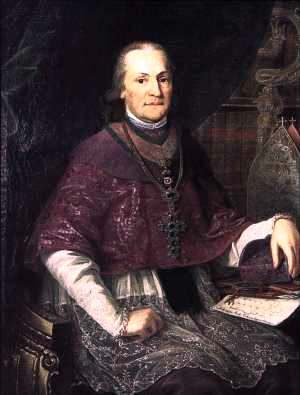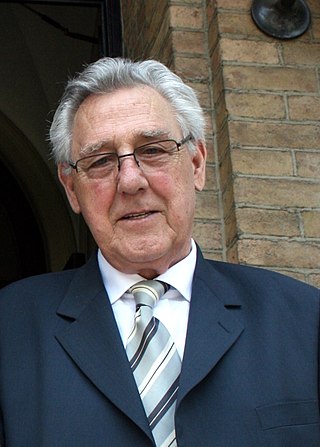
Vatroslav Jagić was a Croatian scholar of Slavic studies in the second half of the 19th century.

Kajkavian is a South Slavic supradialect or language spoken primarily by Croats in much of Central Croatia and Gorski Kotar.

Chakavian or Čakavian is a South Slavic supradialect or language spoken by Croats along the Adriatic coast, in the historical regions of Dalmatia, Istria, Croatian Littoral and parts of coastal and southern Central Croatia, as well as by the Burgenland Croats as Burgenland Croatian in southeastern Austria, northwestern Hungary and southwestern Slovakia as well as few municipalities in southern Slovenia on the border with Croatia.

The Bunjevac dialect, also known as Bunjevac speech, is a Neo-Shtokavian Younger Ikavian dialect of the Serbo-Croatian pluricentric language, preserved among members of the Bunjevac community mostly in the Bačka area of northern Serbia and southern Hungary, particularly in Baja and surroundings. It is also found in Croatia, and in Bosnia-Herzegovina. They presumably originate from western Herzegovina. Their accent is purely Ikavian, with /i/ for the Common Slavic vowels yat.

Maksimilijan Vrhovac was the bishop of Zagreb. He was one of the ideological architects of the Croatian national revival, and is notable for founding the Maksimir Park in 1787, one of the first major public parks in Southeast Europe. Vrhovac was a member of the Freemasons.
Dalibor Brozović was a Croatian linguist, Slavist, dialectologist and politician. He studied the history of standard languages in the Slavic region, especially Croatian. He was an active Esperantist since 1946, and wrote Esperanto poetry as well as translated works into the language.

Pero Budmani was a Croatian Serb writer, linguist, grammarian, and philologist from Dubrovnik and a renowned polyglot.
Ranko Matasović is a Croatian linguist, Indo-Europeanist, and Celticist.

Stjepan Babić was a Croatian linguist and academic.
The Old Church Slavonic Institute is Croatian public institute founded in 1952 by the state for the purpose of scientific research on the language, literature and paleography of the mediaeval literary heritage of the Croatian vernacular and the Croatian recension of Church Slavonic.

Stjepan Ivšić was a Croatian linguist, Slavicist, and accentologist.

Asim Peco was a renowned Bosnian linguist, academician, professor, author and editor.
Božidar is a Slavic given name meaning "Divine gift". The name is a calque of the Greek name Theodoros. Direct cognates of the latter and of Božidar in the (South) Slavic languages include: Teodor, Todor, Tudor, Todo. The feminine form of the name is Božidarka. People with the name Božidar include:
Miljevci or Miljevci plateau is a small region in Šibenik-Knin County in Croatia that includes seven villages. The plateau has an area of over 100 square kilometers and is located between the rivers of Krka, Čikola and mountain Promina. Miljevci is only a few kilometers from the town of Drniš in the east, and across the Visovac Monastery in the west. The majority of the population are Croats.

Milan Moguš was a Croatian linguist and academician.
Bubalo is a Serbo-Croatian-Bosnian surname, borne by ethnic Serbs, Croats and Bosniaks in Serbia, Croatia and Bosnia and Herzegovina. The word buba means "bug" or "beetle", and is derived from a pejorative nickname, based on character traits of its first bearers. At least 343 individuals with the surname died at the Jasenovac concentration camp.
Croatian Vukovians refers to a group of Croatian linguists that were active at the end of the 19th and the beginning of the 20th century. Their work focused on the standardization of the Croatian language. They were led by Tomislav Maretić, and the most prominent members were Franjo Iveković, Ivan Broz, Pero Budmani, Armin Pavić, Vatroslav Rožić and others.
Božidar Finka was a Croatian linguist, lexicographer and member of the Croatian Academy of Sciences and Arts

Petar Šimunović was a Croatian linguist, onomastician, dialectologist, lexicographer, and academic member of HAZU. He was considered as the most prominent Croatian onomastician, and contributed also in the field of dialectology.










